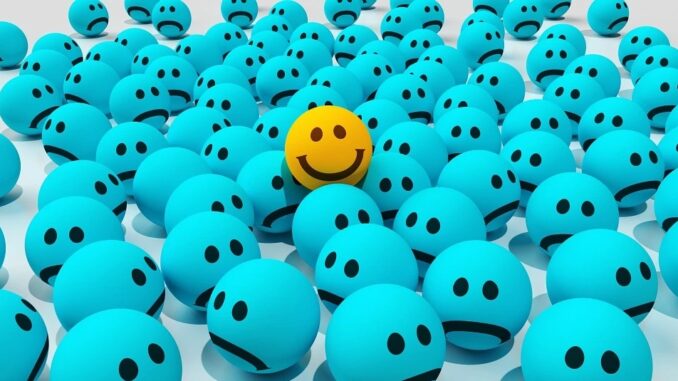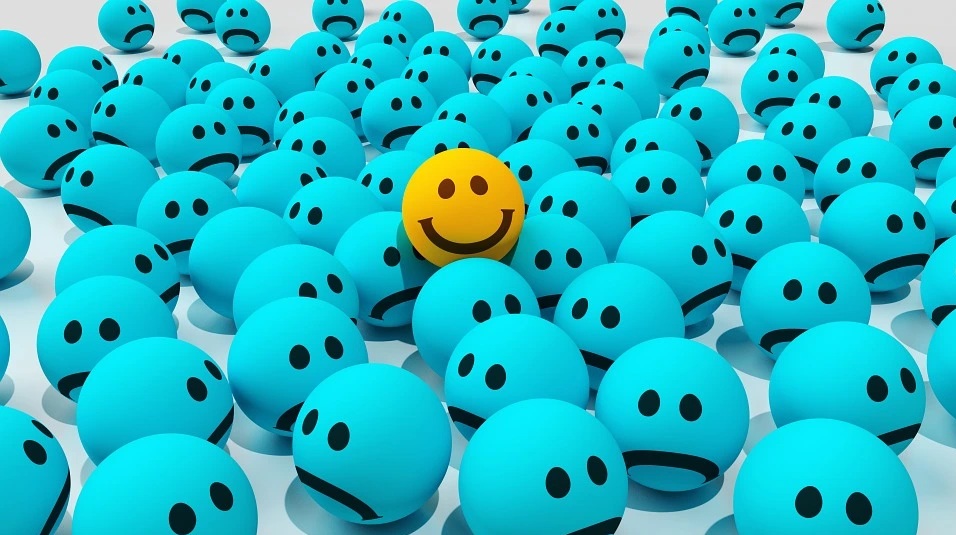
The more you smile, the better you will be.
A lot of people have found this to be true. Smiles make people happy and more positive, feel better because they release endorphins. Smiles are powerful painkillers. Believe it or not, laughing can help with some body aches and pains, lower blood pressure, strengthen your immune system, reduce stress, improve your relationships, and make you look younger. It also helps you stay healthy.
Table of Contents
Happy Brain, Brighter View:
Researchers from the University of South Australia asked people to hold a pen between their teeth, which caused the corners of their mouths to rise. The brains of the people who took part in the study didn’t know that their smiles were fake, says Marmolejo-Ramos.
In our research, we found that when you forcefully smile, it activates the amygdala, which releases neurotransmitters that make you feel happy, “he says.
The amygdala is the part of the brain that deals with emotions, and it plays a big part in processing responses to things like fear, aggression, and stress. It also plays a role in making decisions and remembering.
In terms of mental health, it might be interesting to create positive feelings that aren’t just about personal happiness, but also about how people see things.

Also See: Some Home Remedies to Help Alleviate The Symptoms Of Anxiety
It helps to smile on a day-to-day basis.
Study after study says that looking happy helps people get through the day. But there are a lot of real people who say that looking happy helps them get through the day.
A Florida-based success coach and meditation teacher say that “smiling completely changes the way I think and feel,” which is why she smiles so much. ” My husband and I make a point of smiling for 60 seconds every morning in order to boost our mood. When we get up, we always do this. If something goes wrong during the day, I smile to quickly change my mood. For me, it only takes 10 to 15 seconds now for it to make a big difference. To make sense: “It makes me feel less stressed.” I can change my mood quickly, and I can see things in a new way. “
Pfeffer says that she tells all of her clients to smile when they have long days or do a lot of work. One of my clients told me last week that if you smile for 30 seconds at a time several times each day, you can stay upbeat when you’re making sales calls. He said that after a while, the job can get boring, but the smile helps him stay more excited and avoid getting tired.
Faking a Smile Has Upsides and Downsides
In Dimitriu’s opinion, there aren’t many negatives to pretending to be happy when you’re not, especially as it can boost the odds of acquiring a more positive view in general.
In the long run, you may not need to fake your grin, which could lead to other positive changes in your physical and emotional well-being, according to him.
In his words, “the influence of positive behavior, expectations, and mindset should not be ignored.” Many cases of depression show the reverse, which prolongs bad moods and makes it more difficult to take action to improve one’s situation.
If you want to improve your mental health, it’s necessary to pay attention to how those fake grins are hurting you, says psychologist Ian Sadler, PhD, of Columbia University Irving Medical Center in New York City.

How smiles spread quickly of happiness
Also, a smile is easy to share. Smiles are contagious, just like yawning is.
Dr. Eva Ritzo, a psychiatrist and the co-author of “The Beauty Prescription: The Complete Formula for Looking and Feeling Beautiful,” says this: “This is because we have mirror neurons that fire when we see something that is going on.” Mirror neurons let us copy or mirror the behavior we see in other people, and they have been linked to empathy.
People also think that when they see someone smile, they want to smile back because they feel like they’ve made a friend.
Smile Train, a charity that helps kids with cleft lips and palates, says that “smiles are contagious not just because of how they look on the outside, but also because of the intention and the feelings that go into them.” Someone smiles at you and sends good vibes your way, which makes you want to smile back at the next person, and so on. Keep in mind that a smile can mean a lot more than a simple facial expression to people all over the world.
We may even be able to spread a smile on ourselves. If you’re feeling down or anxious, Dr. Ritzo says you should smile at yourself in the mirror, which not only makes us feel better but can also help us calm down and get back in touch with our center.
Smiles are good for us, and there’s a lot of evidence that this is true. Since I read this piece, I’ve been doing my own little smile tests. There was a lot of traffic last night, so I tried to smile when I was tense. Then, when I had a bad headache this morning, I tried to smile. I find that it doesn’t make sense to smile when I’m stressed or tired, and I feel like I’m leaving my comfort zone. But I have to say that I immediately felt calmer, less angry, and perhaps even a little happier.
The goal is to create a ripple effect
 It turns out that smiling isn’t just good for you. It can also help the people around you. This isn’t the first time we’ve talked about how our brains react when we smile. We also feel good when we see someone else smile. A part of our brain called the reward centre is turned on, and it makes us feel a little better. Plus, a Swedish study says that when we see someone smile, we can’t help but smile back. It’s an all-out happiness loop.
It turns out that smiling isn’t just good for you. It can also help the people around you. This isn’t the first time we’ve talked about how our brains react when we smile. We also feel good when we see someone else smile. A part of our brain called the reward centre is turned on, and it makes us feel a little better. Plus, a Swedish study says that when we see someone smile, we can’t help but smile back. It’s an all-out happiness loop.
Let the endorphins out!
Smile is a best solution to Deal with depression easily
As soon as you smile, your brain releases a group of tiny molecules called neuropeptides that help your body fight stress. Other neurotransmitters like dopamine, serotonin, and endorphins also come into play at this point as well, which makes us feel good. Serotonin is an antidepressant, and endorphins are mild pain relievers, but they don’t get rid of the pain. Some people say that smiling can help us get over stress faster, as well as slow down our heart rate. The truth is, it might even be worth your time to fake a smile and see what happens. Even if you’re forced to smile, it can still make you feel better about yourself and be happier. That said, if you’re having problems with depression or anxiety, you should talk to your doctor right away to find the best way to treat you.
In 31 days, you’ll become a better person
Making small changes to your daily routine can lead to big changes. Check back each day in January for new health, happiness, and productivity tip!
Read More: The Worldwide Organic Chocolate Spreads Industry is Expected to Reach $826 Million by 2027

